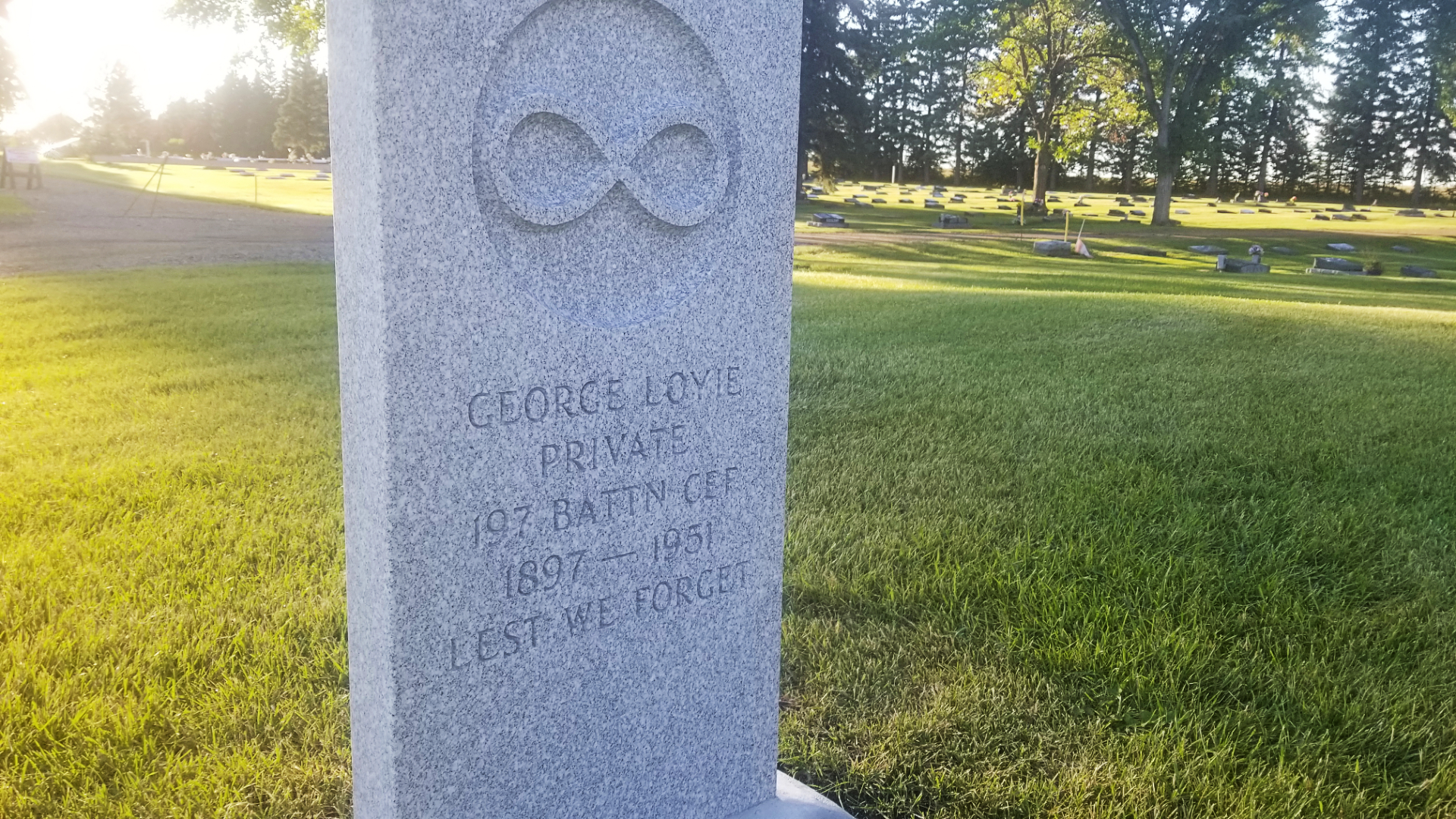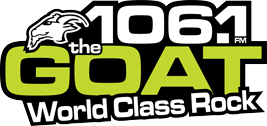A Métis veteran will never be forgotten as a new memorial commemorates his life and service.
George Loyie was born in Edmonton and grew up as a farmer in Onion Lake. Loyie enlisted in the military during WWI and signed his papers in North Battleford at the age of 18. He joined the 197th Canadian Infantry Battalion. and returned to the farm after the war before passing away in 1951.
His body was laid in the Lloydminster Cemetery in an unmarked grave. The city has no records for missing monuments or names prior to 1990 and his grave remained there without a name or marker until recently.
A new headstone was installed at his gravesite in August. Researcher Bobbi Foulds has been working with the Last Post Fund under their latest initiative to find and provide new markers for Indigenous veterans who have none.
The Last Post Fund is a national charity that provides funeral, burial and grave marking benefits to Canadian veterans.
“I noticed there were a lot of empty spaces”
Foulds has a long history working with veterans and was involved with the Edson branch of the Royal Canadian Legion since she was young. Foulds first got involved with the Last Post Fund after she and her children were placing poppies on veteran’s graves during Remembrance Day.
“I noticed there were a lot of empty spaces and it didn’t make sense that there would be empty spaces when the whole thing seemed to be filled. I did some research and I discovered there were a number of unmarked veteran’s graves in the Edson cemetery.”
A friend then told her about the charity. Since discovering the Last Post Fund, Foulds has discovered 85 unmarked graves with 21 of them awaiting headstone installation.
Research begins based off a list of Indigenous veterans made by an amateur historian from France named Yann Castelnot. The list includes 18,830 names and their Indigenous group. Foulds then cross-references the names with databases such as the Canadian Archives to help locate possible gravesites, date of birth or death certificates.
Oftentimes, researchers with the Last Post Fund will work with First Nation leaders and band offices in the areas where the veteran came from to find the unmarked grave. Researchers will compare their list with band registries and speak with family or members of the community to find more information on the veteran.
“Some of these gentleman that we are striving to have marked and properly commemorated, some of them have been buried for just about 100 years. One hundred years of people walking over that spot, not knowing there was someone actually lying there. Now their story will never be gone and will never be forgotten again.”
Foulds says tracking down someone with Métis heritage is difficult as there weren’t many records back then and several travelled to different parts of North America after returning from overseas.
“A lot of these guys were loggers, trappers, miners and most were up in the middle of nowhere in very remote areas. They didn’t have a current forward mailing address back in the day so it was a lot tougher to track them down. Similarly, a lot of family names were passed down from one generation to the next and you could end up with a dozen George Smiths.”
Foulds says it is an indescribable feeling once the marker is placed.
“It’s fulfilling and personally satisfying to know that I’m able to help and offer them a little bit of dignity and honour even after death.”
Indigenous Veterans Initiative
The Indigenous veterans initiative started in June 2019. Indigenous program coordinator Maria Trujillo says veterans can also have their name written in their traditional language or have a marker added to it. In the case of Loyie, the Métis Nation symbol was inscribed on his tombstone.
“We’re always really honoured and happy when anyone puts forward that request because we want to wholeheartedly support it.”
Since starting the program, Trujillo has spent the past year reaching out to First Nations and Métis groups across the country to inform them. The organization also provides the same services to all Canadian veterans.
“If you think a family member may have been a veteran, we could also help to verify their service from our end and confirm that. We encourage anyone and everyone to contact us.”
Those interested in acquiring their services can contact the Last Post Fund through their website. Volunteers interested in helping research unmarked graves can also find contact information there or email them.




